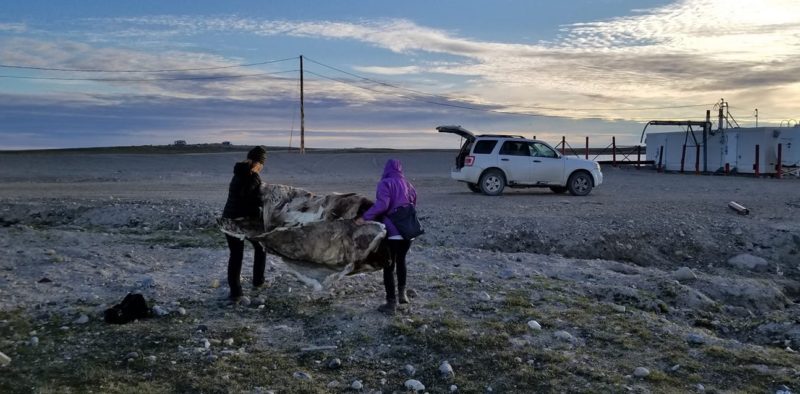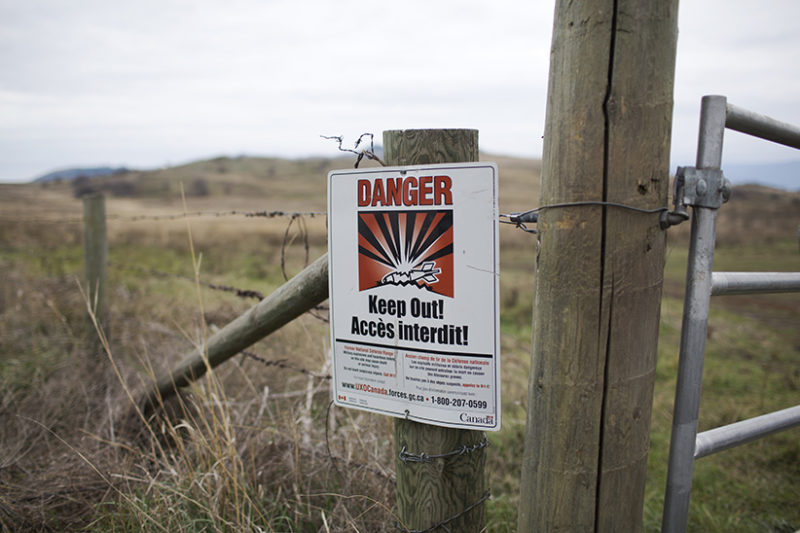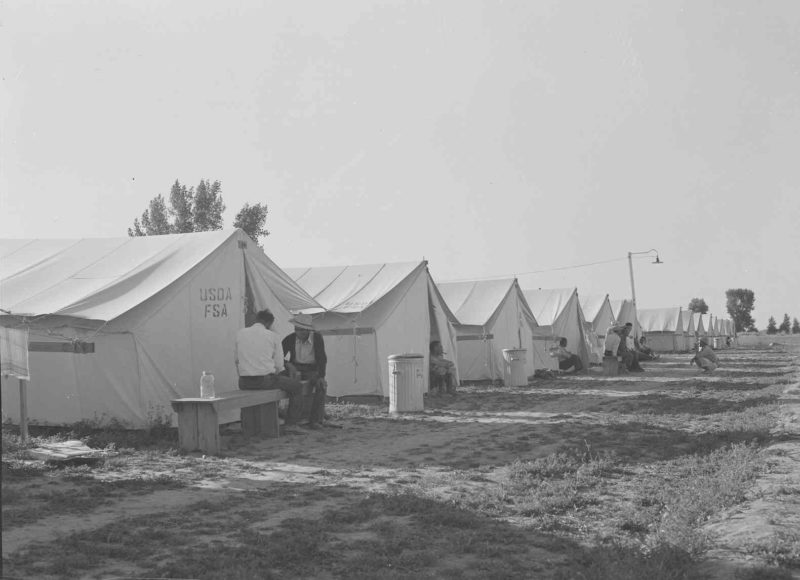A look at historical consulting
06 March 2019 – Tom Van Dewark
In the eyes of the uninitiated, historians spend their days flitting between worn library stacks and museum backrooms. They sermonize about a long-dead past and boast a novel, but not necessarily practical set of skills. By this interpretation, the work of contemporary historians does little to impact the modern world. In reality, however, history is big business—the past is a living thing which is continually being reinterpreted and re-explained.
Historical consultants are central figures in this process. In an increasingly interdisciplinary world, they partner with scientists, geographers, lawyers, artists, architects, indigenous peoples, militaries, and all levels of government to provide a historical lens on a vast range of contemporary topics. They participate as team members and lead self-directed projects. Rather than passively documenting the past, their work actively impacts public policy, shapes cityscapes, alters the decisions of courts, and rewrites foundational narratives which lay at the core of a nation’s self-perception.

Connie Wren-Gunn of Know History moving a Caribou skin tent during fieldwork for Franklin Expedition Inuit Oral History Project. Photo credit: Connie Wren-Gunn
Know History’s ongoing involvement in the Franklin Expedition Inuit Oral History Project stands as an example of this form of active historical engagement. In the late 1840s, 129 men who joined the Franklin Expedition disappeared in the Arctic while attempting to locate the Northwest Passage. Despite repeated search efforts, the ships were not seen again by Europeans for over 150 years. The wrecks of the HMS Erebus and HMS Terror were finally located in 2014 and 2016, respectively. These discoveries were thanks in large part to information provided by local Inuit Knowledge Holders whose intimate understanding of their Homeland and its history is now being shared with the rest of Canada.
Through the Franklin Expedition Inuit Oral History Project, Know History has partnered with Inuit Elders to document their Traditional Knowledge. As an adjunct to Know History’s direct involvement in the collection of oral histories, the research firm is also training local Inuit youth from Gjoa Haven in oral history best practices. This collaborative approach will enable the community to undertake future work independently. Through projects such as this one, it is hoped that indigenous communities will be empowered to place their own stories in positions of prominence in Canada’s national narrative.
Historical consultants also play an important role in influencing public policy, public safety, and the cleanup of environmental contamination. Since before the First World War, millions of munitions have been expended in the process of training Canadian soldiers (and sometimes troops from other countries). Unexploded explosive ordnance (UXO) has been an unavoidable by-product of these military efforts.
In 2005 the Canadian Department of National Defence (DND) created the DND UXO & Legacy Sites Program in response to environmental and safety concerns associated with UXO. One of the main priorities during the early years of the program was the compilation of a database containing all sites in Canada that had been owned, leased, or used by DND for military activities. Canadian Development Consultants International (CDCI) was soon hired to research the histories of these sites, including the type and extent of the training and munitions used at each site. Historical consultants from CDCI sieved through thousands of archival boxes, books, and maps from museums and archives across Canada. CDCI historians and GIS technicians then compiled the material into reports that directed DND field teams to the likely locations of UXO. By including historians, the DND UXO & Legacy Sites Program was able to take a more effective approach to implementing a public policy that seeks to improve safety and environmental conditions at locations across Canada.

A warning sign on the Goose Lake Range in Vernon, British Columbia. Photo vredit: Jason Franson
While historical consultants act as able team members, they can find themselves tasked with the responsibility of leading interdisciplinary teams of experts. Morgen Young, a historical consultant in Oregon, demonstrated this through her work as the project director of Uprooted: Japanese American Farm Labor Camps During World War II. This project produced two sets of traveling photography exhibitions, Spanish and Japanese translations of text panels, a comprehensive website, eighteen video oral histories, two documentary videos, and two lesson plans for the Oregon Cultural Heritage Commission.
Uprooted was a content-driven project which required a historical expert like Young at the helm. As one may expect, she was responsible for researching and writing exhibition and digital content as well as managing an oral history program. However, she also directed both documentary videos and oversaw the graphic designer, video producers, translators, the shipping company, and the curriculum developer. Young’s work resulted in a project that traveled to venues across Oregon, Washington, Idaho, and California, including the Oregon Nikkei Legacy Center and the Japanese American National Museum. The project also received the 2016 National Council on Public History Excellence in Consulting award.

Japanese farmworkers at a farm labor camp in Shelley, Idaho, July 1942. From the “Uprooted” photogallery. Photo Credit: Russell Lee, Farm Security Administration, Library of Congress, LC-USF34-073778-D
Historical consultants find themselves wherever a re-examination of the past is required. From analyzing military records, to navigating the Arctic, to leading interdisciplinary teams and beyond, the historians who participate in this work utilize a varied range of skills, knowledge, and competencies. Nevertheless, while the products of historical consulting have widespread influence, the consultants behind them usually operate outside the eyes of the academy and general public. Because of this fact, many people are not even aware that the field of historical consulting exists. Next time you see a historical thread interwoven in the world around you, ask yourself, could a historical consultant have been there?
~ Tom Van Dewark, M.A. is a senior associate at Know History, a historical consulting firm based in Ottawa, Ontario. His research focuses on Métis history, oral history, and historical documentaries. You can find Tom on Twitter @Tom_VanDee




How do I get a job in this field?
Hi Alison,
A good place to start is at the National Council on Public History’s annual conference in Hartford later this month. At the conference, the NCPH Consultants Committee is holding a “Starting and Growing a Historical Research Business” workshop. In addition they are hosting the annual “Consultants’ Speakeasy” which is a fantastic causal networking opportunity. Check out the NCPH 2019 program for more details on those.
If you are based in Canada, you should keep an eye out for public job postings by Know History. While I am not very familiar with the consulting job market in the United States, it might be helpful to take a look at the NCPH Consultant Directory (https://ncph.org/consultant-directory/). While this list is not exhaustive, it can give a pretty good picture of who is in the industry with associated contact information.
Feel free to reach out to me on twitter if you have any specific questions @Tom_VanDee.
I am in the United States, the thing is the area I am in does not have many opportunities for this type of work, and I very much enjoy research and the stories that research can tell. I will, however, look into Know History’s website. I really do not have a problem with relocation.
Alison